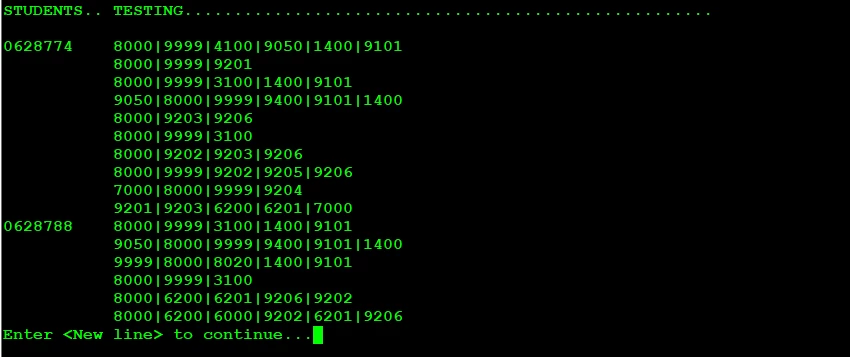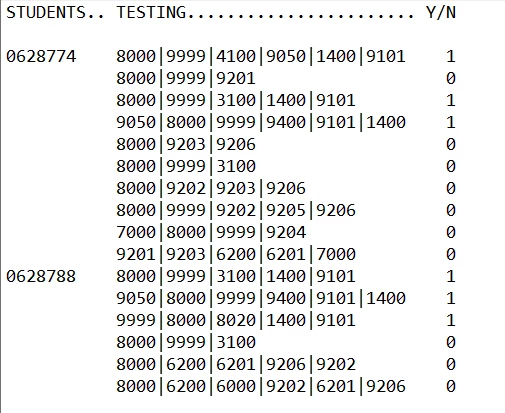Here is a record sample:

The TESTING column is a multi-valued list, and the pipes represent actual SVMs for readability.
I'm looking for a function that will return an associated boolean list indicating whether or not either '1400' or '9101' exists in TESTING, so...

In this sample, if one is present so is the other, but that's not always the case. So a 1 should be returned if either exists in what is actually a subvalued list.
EDIT 1: A subroutine would make this very easy, I know, but I don't have time for the administrative overhead that comes with developing/delivering one to PROD, so I need this to be "idescriptor" language.
Also, there will be subsequent processing, based on a SUM() of the Y/N list for each record, which will be compared to DCOUNT(TESTING,@VM).
EDIT 2: I think I found a solution. I didn't realize I could use the INDEX function on lists. Though it will require another step or 2 to get the final result, I think it will work.






